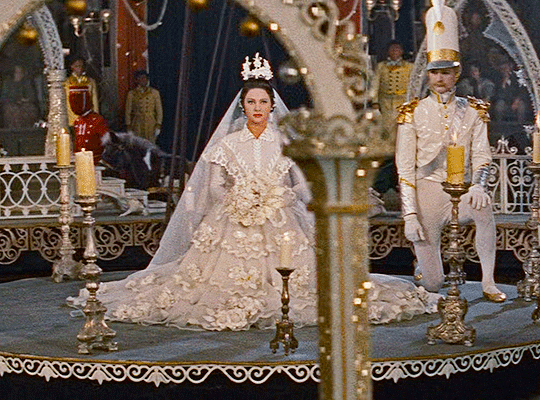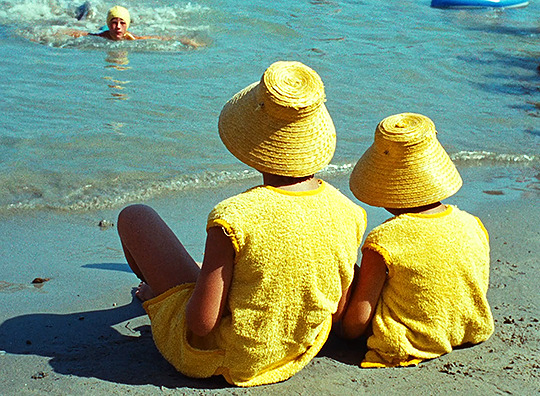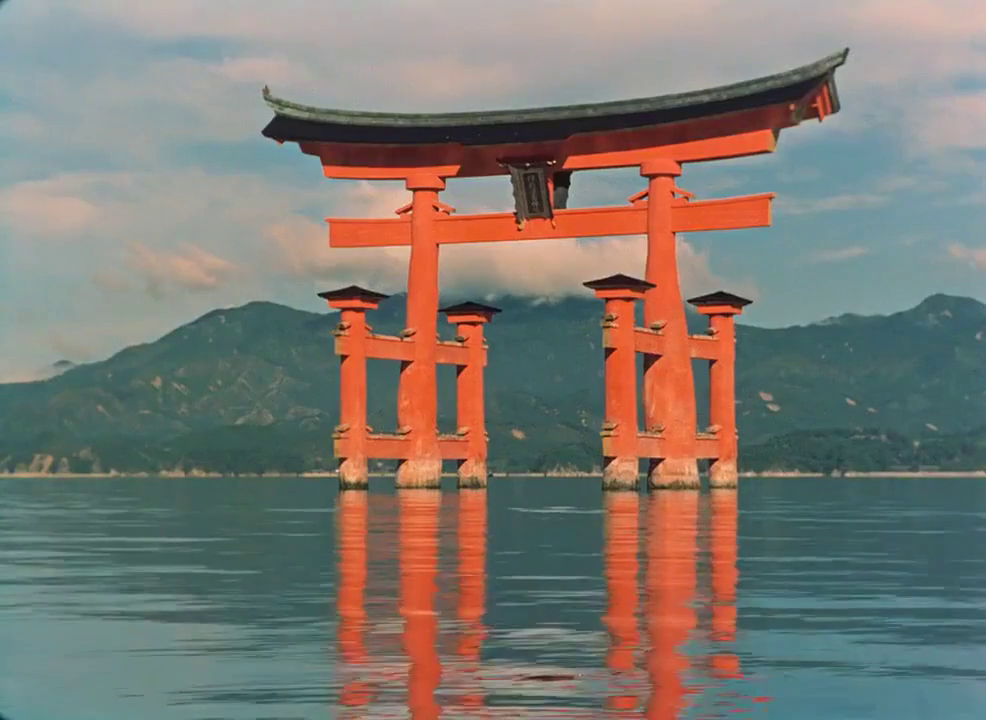“The painter takes his time. He doesn't like her dress. He doesn't like her gloves. One day he asks her if she dares pose for him – all in pink. She dares! And the king, enraptured by her pose, offers her a palace!” Lola Montès (Max Ophüls, 1955)
Aug
14
Bavaria

The crowned royal mistress on display in glorious Eastmancolor (via). DP: Christian Matras.
Celebrating Oktoberfest [in September/October] and the Bavarian royals [rip]: a royal character or family*
– circus master
Maria Dolores Porriz y Montez, Countess von Landsfeld, Lola Montès for short, now a circus attraction, once the mistress to Ludwig I, King of Bavaria. While her fellow circus performers play Lola's former lovers, the ringmaster tells her story.
* the Bales 2025 Film Challenge for August is not date-related but lists, for the most part, the colours of the rainbow.
Eastmancolor
“Tourists prefer the trendy colors, yellow and blue. Pacing fancies, hotels are painted yellow and blue. Blue wins. All women want to be fashionable. All women wear blue, except the English, those learning to swim, and the Germans, who are dedicated to green.”Du côté de la côte [Along the Coast] (Agnès Varda, 1958)
Aug
9
yellow

Two people, one big one small, in identical canary yellow robes and straw sun hats on the beach (more here). DPs: Quinto Albicocco & Raymond Castel.
Yellow, in food or fashion*
– narrator
* the Bales 2025 Film Challenge for August is not date-related but lists, for the most part, the colours of the rainbow.
“Today is the first day of a life of sacrifice.” 地獄門 [Jigokumon / Gate of Hell] (Teinosuke Kinugasa, 1953)
Aug
4
orange

The shrine's torii as seen in the film. Vermilion contains mercury, which not only acts as a preservative but is also believed to ward off evil. DP: Kōhei Sugiyama.
Orange: a building or structure*
– Moritoo Endō
Partially filmed near the 厳島神社 (Itsukushima Shrine) with its striking vermilion torii.
Shot on Eastmancolor, relatively cheap and globally available, and influenced by Hollywood colour melodramas of the time, in particularly Rudolph Maté's Mississippi Gambler (1953) (source), and in its turn greatly influenced the implementation of colour in global cinema to come.
Jigokumon won two Academy Awards in 1955, for Best Costume Design and Best Foreign Language Film.
* the Bales 2025 Film Challenge for August is not date-related but lists, for the most part, the colours of the rainbow.